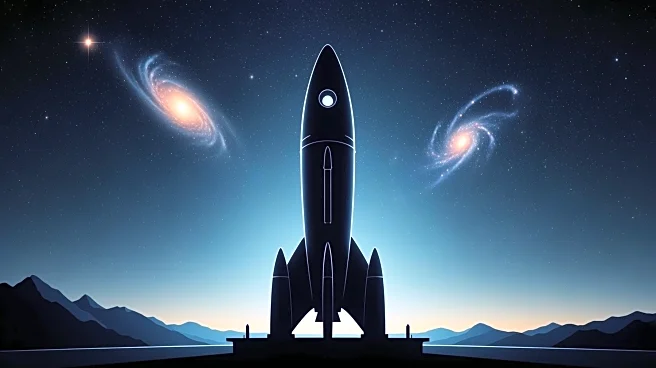What's Happening?
Orienspace's Gravity-1 rocket, the world's most powerful solid-fuel rocket, successfully completed its second launch from a ship in the Yellow Sea. The launch, which took place on October 10, sent a wide-field
satellite and two experimental spacecraft into their designated orbits. Gravity-1, standing at 100 feet tall, consists of three stages and four strap-on boosters, capable of carrying 14,300 pounds to low Earth orbit. The rocket's first flight occurred in January 2024, launching three commercial weather satellites. Orienspace is also developing two larger rockets, Gravity-2 and Gravity-3, which will feature liquid-fuel core stages and solid rocket boosters.
Why It's Important?
The successful launch of Gravity-1 underscores China's growing capabilities in space technology and its commitment to expanding its presence in orbit. This development is significant for the global space industry, as it introduces new competition and innovation in rocket design and launch capabilities. Orienspace's advancements could lead to increased commercial opportunities and collaborations, potentially influencing international space policy and market dynamics. The launch also highlights China's strategic focus on solid-fuel technology, which offers advantages in terms of reliability and cost-effectiveness.
What's Next?
Orienspace plans to continue developing its Gravity-2 and Gravity-3 rockets, aiming to enhance payload capacity and launch capabilities. These developments could position Orienspace as a key player in the global space industry, potentially leading to partnerships and contracts with international entities. The company's progress may also prompt other nations to accelerate their own space technology advancements, fostering a competitive environment in the sector.
Beyond the Headlines
The launch of Gravity-1 raises questions about the geopolitical implications of China's expanding space capabilities. As China continues to invest in space technology, it may influence global power dynamics and the future of space exploration. Ethical considerations include the potential militarization of space and the need for international regulations to ensure peaceful and cooperative use of space resources.









